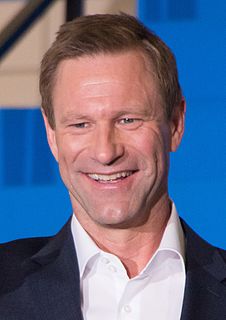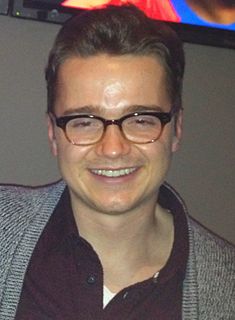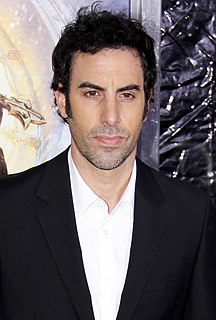A Quote by Frank Miller
When I'm writing a comic book, I'm thinking about a character that I'm going to be drawing on the page. I've never drawn a character to look like who I want to cast in a movie because I don't think that way. I'm a real monomaniac. I do one thing at a time.
Related Quotes
When we want a book exactly like the one we just finished reading, what we really want is to recreate that pleasurable experience--the headlong rush to the last page, the falling into a character's life, the deeper understanding we've gotten of a place or a time, or the feeling of reading words that are put together in a way that causes us to look at the world differently. We need to start thinking about what it is about a book that draws us in, rather than what the book is about.
The first thing that happens is the cleansing of the former character. I don't think a lot of actors talk about it, but there is usually a process where you essentially purge yourself of the character played prior to the movie. Then you want to think about what the character represents, and you write down all of the elements about this character and then take the time to find some synchronicity and start breathing the character.
Comic books sort of follow with the move - if people see the movie and if they're interested in the character and want to see more of the character, they start buying the comic books. So a good movie helps the sale of the comic books and the comic books help the movie and one hand washes the other. So, I don't think there's any reason to think that comics will die out.
When you're writing TV or movies your vernacular is time, it's all based on rhythms, a character takes a beat or two characters have a moment, like everything is about time. And when you're writing a comic, everything is about space. It's how many panels to put on a page, when should you do a full page splash, what is the detail that you see in any particular image.
One of my favorite things about the Kung Fu Panda 3 is the look of it. We never go for realism. I think a lot of time when people go for 3D that's the mistake. Because we're never going for full realism - for computer generated live action films like Avatar the goal is realism, to make the audience feel like they are seeing something that is real. Lord of the Rings had character design and environments to make it look real, whereas we aren't going for that, we are going for something that is theatrically, viscerally, and emotionally real.
I have done scenes as Harvey Two-Face. It's interesting. I won't tell you exactly what we're going for, but I think that I can say that it will use all of today's technology to create this character. He's going to be interesting, and I think that's what makes this character important in the movie-you get to see him as he was before, as in the comic books. Harvey is a very good guy in the comic books. He's judicious. He cares. He's passionate about what he loves and then he turns into this character. So you will see that in this film.
It wasn't like this happy-go-lucky experience, shooting Norman movie. It was something I kind of had to, sort of dedicate a certain level of focus and energy to kind of just stay in this headspace that would allow me to access - because it's also a very emotional movie at times. This was the first time I ever played a real character, a fully fleshed out, dimensionalized, multi-faceted character, as opposed to a part. There's not very much opportunity for somebody of my age and my look, so for a character-driven piece like this to come along is a rare thing.
The plot is very important because writers have to play fair with their readers, but no one would care about the plot if the character work wasn't there. So, basically every book I work on starts with me thinking not just about the bad thing that's going to happen, but how that bad thing is going to ripple through the community, the family of the victim, and the lives of the investigators. I am keenly aware when I'm working that the crimes I am writing about have happened to real people. I take that very seriously.
You know, my problem with most screenwriting is it is a blueprint. It's like they're afraid to write the damn thing. And I'm a writer. That's what I do. I want it to be written. I want it to work on the page first and foremost. So when I'm writing the script, I'm not thinking about the viewer watching the movie. I'm thinking about the reader reading the script.
When I'm writing, I try to have the mask of my character on as I'm walking through the world. When I'm not at my desk, the rest of the time, I try to stay in that character and see the world the way that character would It's almost like method acting in a way — keeping the character close the way the actor keeps a script close and always tries to be in character.
If you want to write about a person who isn't nice, people say, "This is a bad book. It's about somebody I couldn't stand." But that's not the point. You don't have to like a character to like a book. Most of the time, people would misjudge and say, "I didn't like the book." No, you didn't like the character. That doesn't make it any less interesting of a book. In fact, to me, it makes it more interesting.
When you are writing, you have to love all your characters. If you're writing something from a minor character's point of view, you really need to stop and say the purpose of this character isn't to be somebody's sidekick or to come in and put the horse in the stable. The purpose of this character is you're getting a little window into that character's life and that character's day. You have to write them as if they're not a minor character, because they do have their own things going on.







































